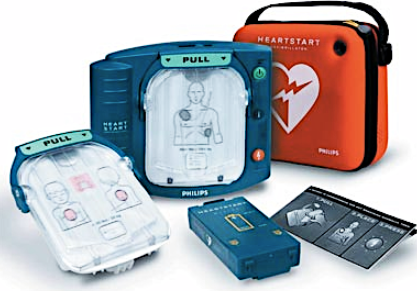Is your AED ready to shock?
AED Maintenance
If you are reading this article you either have an AED or you are thinking of purchasing one. We applaud your diligence to learn more. Just like a bottle of Tylenol expires so do the pads and battery of an AED. Expiration dates on AED pads and battery’s differ depending on the make and model. Basic AED maintenance includes knowing where to locate your AED pads and battery expiration date. Once you have done that set a calendar reminder on when to replace them. You are now on your way to basic AED maintenance.
Why Do AED Pads Expire?
If you manage an automated external defibrillator (AED) program, you know that pads have an expiration date. Here we share a little more on why they expire.
Good Skin Contact for AED Pads is a Must for two reasons
For an AED to provide the right kind of therapy to a sudden cardiac arrest (SCA) victim, the AED pads must make proper contact with the patient’s skin. With good contact, the AED is able to correctly analyze the patient’s heart rhythm and determine whether the patient needs a shock. Additionally, proper contact by the AED pads is necessary for the AED to deliver lifesaving shock therapy.
AED Pads use an adhesive and conduction Gel
In order for an AED to work effectively the pads will need to stick to the skin. During AED pad production an adhesive is applied to the pads to make them stick to the patients bare skin. A conduction gel is also applied to ensure the electrical shock is delivered effectively. However, over time, the gel begins to dry out and the chemical makeup of the adhesive will break down. When AED pads are used beyond their expiration date, the pad will not adhere to the skin or deliver an effective electrical shock.
The Solution – AED Pads Expiration Dates
It is important to keep an eye on the expiration dates of your AED since the manufacturers of AED pads cannot guarantee that the pads will have enough adhesion and conduction gel to work properly after a certain amount of time has passed. Therefore, the pads have an expiration date to help ensure that sudden cardiac arrest patients have the best possible chance of survival. Typical life expectancy of AED pads are between 18 and 30 months. It is vital to conduct routine maintenance and supply checks of all your AED units and medical emergency supply kits to ensure that your AED program is in compliance. The risk of not doing so could cost someone his or her life.
AED Battery Life: When to Get an AED Battery Replacement
The life of a battery varies depending on the manufacturer and typically needs to be replaced every 2 – 7 years. It’s critical to know if your AED battery replacement date is approaching. You can have a new battery ordered before the old one expires. A study published by the Annals of Emergency Medicine in 2011 found that almost one in four AED failures was due to faulty batteries, which resulted in 1150 deaths over a 15 year period.
- How do you know if your battery falls into the 2 year or 5 year category?
- Already know that you need an AED battery replacement?
AED Battery Replacement Dates
There can be one or more dates stamped on your AED battery, and it can be a little confusing. To make sure your AED is rescue ready, it is important to understand the meaning of the dates on your battery.
Three types of dates commonly used on a battery:
- Manufactured Date
- Install By Date (shelf-life)
- Expiration Date
AED Replacement Battery Tips
- Track the date – If your AED battery uses an “Install by” or “Manufactured Date”, mark the date you installed the battery or keep track of it in your records.
- Routine Checks – Check your AED device routinely per manufacture recommendations. To ensure the device is “rescue ready” and that all of the disposables are current and installed correctly.
- Recycle – AED batteries are Lithium based and recyclable, never placed in the trash.
- Replace – Visit our AED batteries page to shop by brand to find the right replacement batteries for your AED machine.
Purchase an AED
If you are looking for recommendations on purchasing an AED or need to purchase replacement pads or batteries, we can help you with that.
Call Marlo Holloway at 206 790-0743

